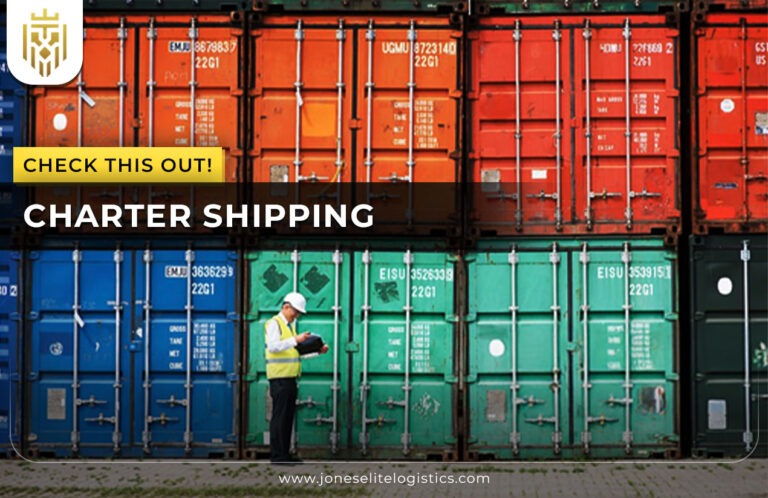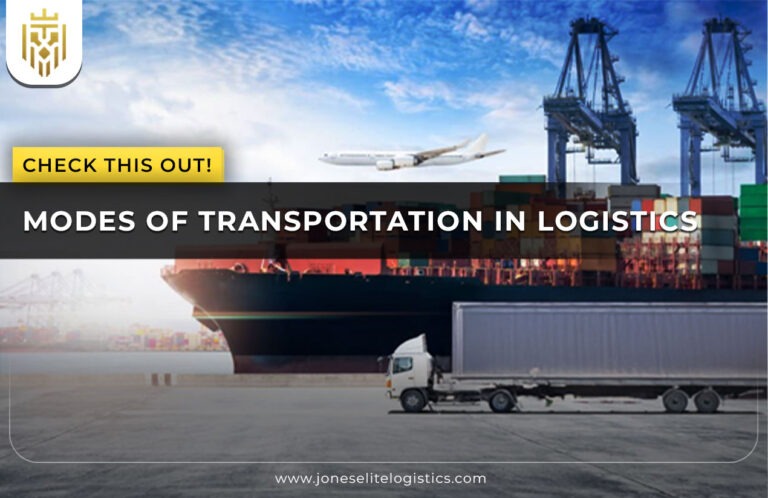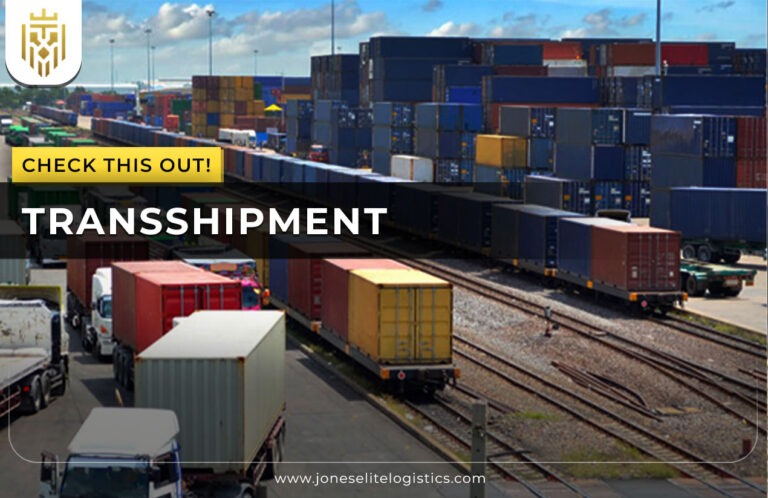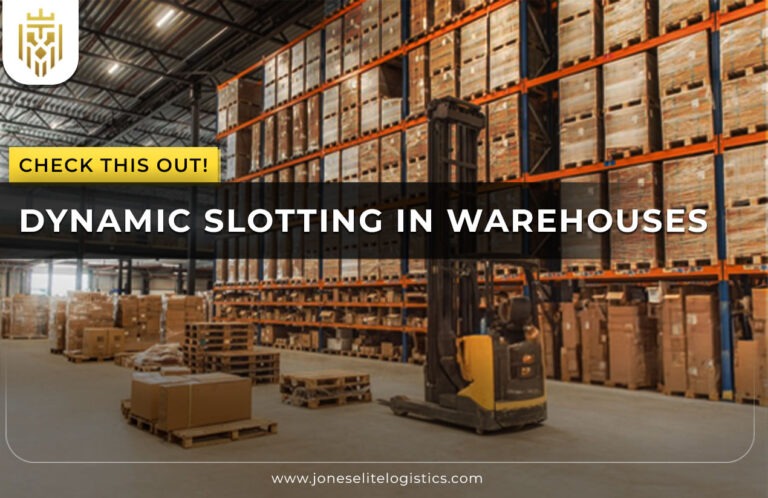What is International Logistics?
International logistics management involves the movement of goods, services, and information across international borders to ensure smooth supply chain operations. It includes transport and storage, compliance with customs regulations, and cost optimization to support international trade. International trade involves the cooperation between different stakeholders, and it implies compliance with numerous international trade laws and norms.
Elements of International Logistics:
Some of them are transportation and logistics, adoption of supply chain visibility, documentation and paperwork requirements, warehousing and distribution features, risk management, technological and automatic aspects as well as the aspect of costs back.
Transportation:
Transportation, which is a key element in international logistics, entails the use of planes, ships, trains, or vehicles. Efficient international transportation involves choosing the right mode of transport based on shipping costs, delivery timelines, and cargo requirements. Proper logistics management minimises delays and ensures cost-effectiveness.

Supply Chain Visibility:
Visibility enhances decision-making by tracking international shipping and optimising supply chain operations. Technologies such as GPS and RFID improve transparency, aiding efficient logistics management and avoiding potential supply chain disruptions.
Documentation and Paperwork:
Meeting administrative requirements with accurate documents like customs brokerage forms and invoices ensure compliance with customs regulations. Accurate documentation facilitates clearance of customs and other lawful procedures hence reducing time delays and penalties. Partnering with a reliable customs broker minimises disruptions during international transportation and freight forwarding.
Warehousing and Distribution:
Warehousing and distribution integrates warehouse management systems to minimize lead times and reduce errors in the international logistics process. Planning delivery routes enhances business logistics and reduces costs.

Risk Management:
International logistics risk management refers to the assessment of risks followed by the development of measures that limit exposure to risks associated with global business. This is on issues to do with risks like cargo damage, political issues, and customs authorities’ interventions. Adopting risk mitigation strategies ensures smooth logistics activities in international transportation.
Technology and Automation:
Automation and novel technology are efficient and accurate tools to implement the international logistics system. This embraces integrated transport management applications, warehouse management systems, automatic inventory tracking systems, and real-time data analysis systems. Automation optimises logistics management, minimize errors, and reduce human intervention, ensuring effective international logistics services.
Cost Optimisation:
Economization of the cost in the international supply chain is the integration of strategies that seek to decrease the charges incurred at a definite service level. Such strategies involve optimising shipping costs, consolidating cargo, and negotiating better carrier rates. These strategies enhance efficiency, benefiting the international logistics company involved.
International Logistics Process:
International logistics services can be explained as the general planning of activities so that goods can be efficiently shipped across borders. It involves detailed planning for smooth international shipping, compliance with customs authorities, and ensuring timely delivery across international borders.
Order Processing:
Purchase order processing comprises the physical work that is undertaken for the logistics chain process which involves receiving the customer’s orders, acknowledging receipt, logistics partner coordination, and timely arrangement of shipments. This stage includes the confirmation of the stock, creating new order documents, and organizing the picking, packing, and labelling of the products with the warehouse.

Document Preparation:
Document preparation is one of the most important activities of the international logistics. This entails drawing and assembling all relevant papers that may be needed with following customs procedures in the process of shipping goods across borders. Such documents include invoices issued in commercial trade, lists of packages, shipping documents, shipment commercial cooperative reports, and international customs forms.
Freight Forwarding:
Freight forwarding plays a key role in international logistics services, being the process of choosing carriers for shipping and putting the shipments through to the ultimate consignees. Another important element of supply chain management is also called freight forwarders, who work out the transport and logistics, arrange shipments and document consolidations for efficient logistics management. Their expertise ensures compliance with customs procedures and seamless coordination in international logistics operations.
Custom Clearance:
Timely customs clearance, supported by a dependable customs broker, ensures smooth movement of goods while adhering to customs regulations. Effective customs brokerage minimises delays and facilitates quicker entry of goods into the global marketplace.
How to Optimize International Logistics Process:
International logistics relates to the procedures and steps that may be adopted to get the best results out of the import/export chain. Some important tactics are inventory control, shipment consolidation, transportation mode selection, consolidation with reliable sources, and simulation of the supply chain.
Optimize Inventory Management:
Optimizing inventory with a warehouse management system prevents shortages, enhancing logistics activities and minimizing supply chain disruptions. Better inventory tracking supports efficient supply chain operations and mitigates logistical challenges in international logistics management.
Consolidate Shipments:
Consolidation minimises shipping costs by grouping cargo efficiently, reducing overall expenses in international transportation. This approach also streamlines logistics activities, ensuring reliable delivery and better coordination with the logistics partner.
Optimize Transportation Mode:
The procedure of transport mode consolidation means picking the most suitable means of transport – airways, seaways, railways, or roads depending on criteria such as cost, time, reliability, and type of cargo. Understanding and deciding on the right mode of transport always goes a long way in determining delivery time, and hence, improving the flow of logistics.
Establish Reliable Relationships:
Partnering with a trusted logistics provider enhances efficiency in reverse logistics and reduces delays in international shipping. Reliable partnerships also ensure compliance with customs regulations, critical for seamless international logistics management.
Enhance Supply Chain Visibility:
Advanced tracking tools enhance supply chain operations, boosting logistics management through real-time insights into international order movements. Improved transparency reduces supply chain disruptions and facilitates efficient handling of cargo in international trade.
Benefits of International Logistics:
International logistics involves the following benefits that aid firms and organizations to expand and function effectively in an international market. On the aspects of values, the following opportunities are noted: market access, timely delivery, returns management, reduction of risks, and general management of customs and taxes
Reach and Market Expansion:
International logistics management enables businesses to expand into the global marketplace, increasing brand visibility and customer base in international business. Effective logistics management ensures market diversification, driving growth and reducing dependency on local markets.

Timely Delivery:
Advanced logistics management tools optimize routes, ensuring on-time deliveries across international borders in international shipping. Timeliness in cargo transportation builds trust and improves reliability in international logistics services
Returns Management:
Efficient reverse logistics processes enhance customer satisfaction, reducing delays and costs in business logistics. Returns management streamlines international order handling, ensuring smooth operations across the supply chain.
Risk Mitigation:
Identifying and mitigating risks such as supply chain disruptions and transport delays ensures robust international logistics operations. Proactive measures safeguard against logistical challenges, enabling efficient global trade management.
Customs and Taxation:
Streamlined customs brokerage processes minimize bottlenecks, ensuring compliance with customs regulations during international shipping. Efficient handling of customs procedures reduces delays, optimising supply chain operations and ensuring timely delivery of cargo.
Challenges of International Logistics:
Logistical challenges, such as supply chain disruptions and compliance with customs regulations, affect smooth international logistics operations. Addressing transportation and infrastructure gaps is essential for optimising global trade and mitigating risks in international business.
Supply Chain Security:
The supply chain security concept entails preventing the products from being stolen, damaged, or having their content interfered with during transportation. Preservation of the supply chain security is vital to product authenticity, client satisfaction, and adherence to the existing legislation. Risk areas include the risk of theft of the cargo, cybersecurity issues, and risk to transportation corridors.

Currency Fluctuations:
Fluctuations in currency are other big factors that affect the cost of logistics when it comes to the international market. The volatility of exchange rates has implications on price, cost, and income statements, and on the business’s financial projections. Companies have to control some risks, including currency risks affecting them through various approaches that may include hedging, forward, and maintaining different portfolios of currencies will have the negative impact eliminated.
Transportation and Infrastructure:
Addressing inadequate transportation networks and poor infrastructure optimizes logistics management in emerging markets. Investments in infrastructure improve international logistics services, facilitating seamless international transportation and reducing delays in global trade.
Trade Compliance:
Trade compliance, therefore, entails regarding legal rules governing international trade relations as well as customs and export/import codes. Consequently, there are fines and even legal problems, project delays may happen as well. Traders have the responsibility of ensuring that they adhere to trade compliance by understanding changes in the regulations, and documentation should be updated, and establishment compliance programs.
How Jones Elite Logistics can help you in International Logistics?
Jones Elite Logistics provides tailored logistics management solutions, ensuring efficient international transportation and compliance with customs procedures. They specialise in reverse logistics, advanced tracking systems, and comprehensive support for smooth international logistics operations.
FAQs
1) What is International Logistics?
International Logistics is the proper management of the products, services, and information where all has to be delivered to the required place from the source point across the geographical borders.
2) What are the advantages of International Logistics?
The benefits associated with International Logistics include market access, the opportunity to access people worldwide, chances to increase sales, client satisfaction, coherent supply chain management, and competitiveness resulting from the streams and efficiency of logistics.
3) What are the challenges of International Logistics?
There are various problems in International Logistics such as Supply chain security threats and some costs affecting this type of logistics in different currencies; some modes of transportation might be substandard, particularly in the developing world, and complexities relating to trade and customs.
4) What are the components of International Logistics?
Aspects of International Logistics involve transport, control of the supply chain, handling of customs, documentation and paperwork, assessments and risks, and covers technology for the purpose of the system.









